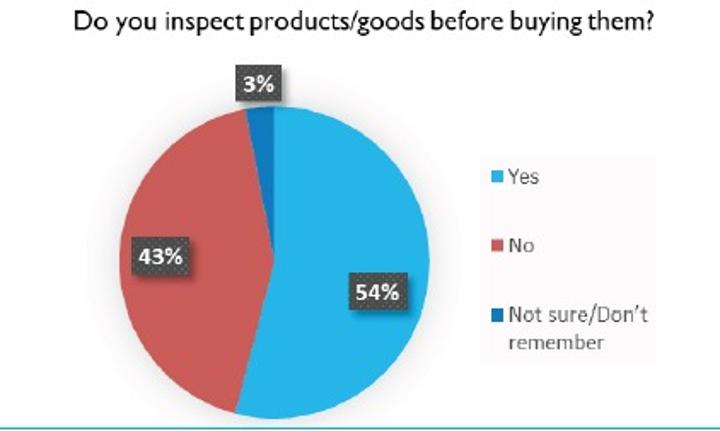Africa-Press – Tanzania. OVER 40 per cent of Tanzanians do not have a tendency of inspecting products to check if they are genuine before making the decision to purchase them, a recent Human Rights and Business Report has revealed.
Due to low awareness over the matter, some 31 per cent of the respondents involved in the study confirmed suffering harm as a result of consumption of counterfeit or substandard products, including diarrhoea and skin infections.
Presenting the report to the media and human rights stakeholders in Dar es Salaam recently, Legal and Human Rights Centre (LHRC) researcher, Fundikila Wazambi said 54 per cent of the total 2,600 respondents reached during the Human Rights and Business Survey 2021 said they inspect the products.
“In the previous survey (2019), the majority of respondents (55.3 percent) said they inspect products before buying them, while 30.7 per cent said they do not do that, and 14.1percent said they were not sure or did not remember if they inspected them or not,” the report read in part. “Others said they didn’t inspect and they were being protected by God,” the researcher further said.
Wazambi said the community members engaged during the survey were also asked whether they had come across or bought a counterfeit or substandard product; and the majority of them, 61 per cent, said they had not, while 37 per cent said they had come across such products.
The 360-page report indicated that only 2 per cent were not sure or did not remember if they had come across substandard products. However, despite some respondents realizing that they had bought counterfeit or substandard products, the report added, only 4 per cent per cent reported the matter to relevant regulatory authorities, a decline of 1 per cent compared to the survey conducted in 2019.
“Only 46 per cent of the respondents also indicated they returned to the trader/seller to complain about the product, while half of the respondents (50 per cent) said they did not do anything,” it added.
Heralded by the theme ‘Taking Stock of Labour Rights, Land Rights, Social Responsibility, Gender and Other Forms of Discrimination, Environmental Rights, and Human Rights in the Business Sector’ the report highlighted other areas, including Labour Laws, working environment, remuneration, and compensation for Injury Sustained at Work and right of associations.
Speaking at the launch of the report, the LHRC Executive Director, Advocate Anna Henga said the report also focused on Covid-19 pandemic effects in the business sector, specifically on working contracts between employees and their employers.
The LHRC’s eighth report also focused on special groups, including bus and truck drivers, whom Advocate Henga said “they are facing various challenges, including long working hours, low wages and work without contracts.”







